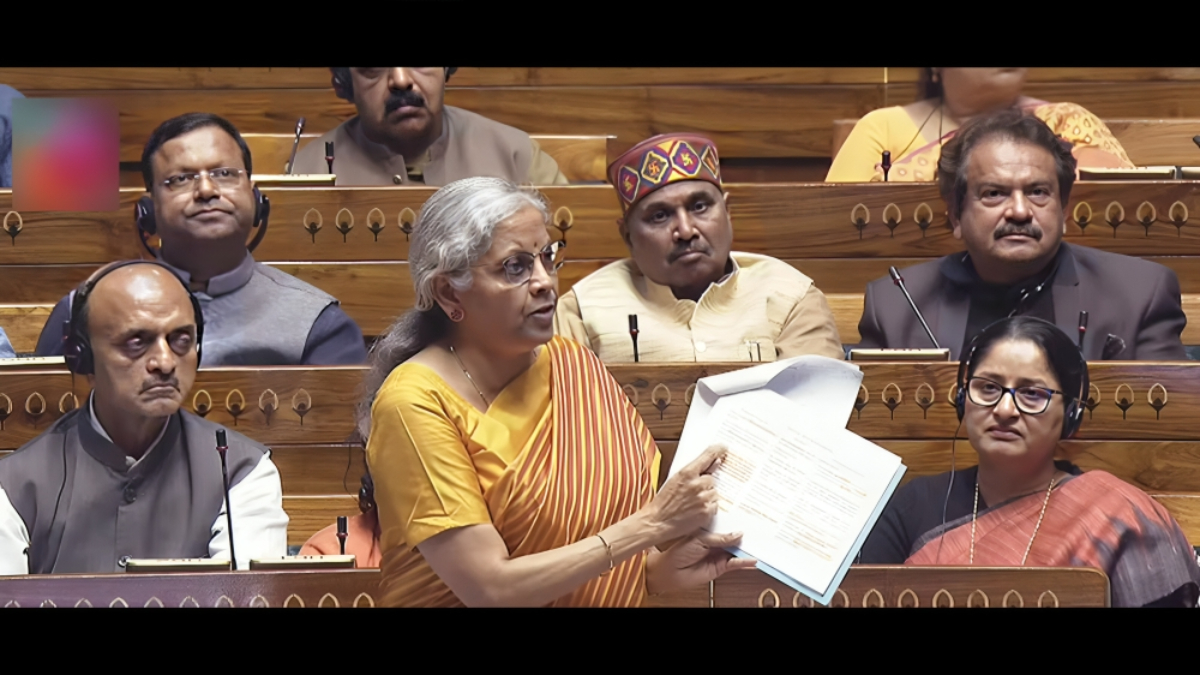Finance Minister Nirmala Sitharaman strongly criticized the Congress party, specifically targeting Sonia Gandhi as the “super Prime Minister” whose leadership was the root cause of the economic mismanagement during the UPA rule. During her response in the Lok Sabha regarding the discussion on the white paper on the Indian economy, Sitharaman emphasized that the paper was not filled with baseless allegations, but rather supported by concrete evidence. Sitharaman further accused the Congress of compromising national security and causing delays in environmental clearances for various projects, attributing these issues to a failure in leadership.
She highlighted that the UPA era was characterized by a lack of direction and leadership, with Sonia Gandhi assuming the role of a “Super Prime Minister” as the Chairperson of the National Advisory Council (NAC). Sitharaman questioned the rationale behind granting such unaccountable and unconstitutional powers to the NAC, which resulted in files being sent for approval to an entity that lacked accountability and transparency.
She inquired whether the andolan jivis (individuals who thrive on protests) who were part of the NAC, were responsible for drafting legislations such as the Right to Food and the Right to Information. She questioned whether this should be deemed acceptable by the members of Parliament.
She further criticized Congress leader Rahul Gandhi for tearing up an ordinance during a press conference while Prime Minister Dr Manmohan Singh was on a tour. She considered this act as an insult to the country’s Prime Minister, stating that Rahul Gandhi showed no regard for his own Prime Minister.
Sitharaman also highlighted the glaring mismanagement of the defence sector under the UPA government, specifically mentioning the Rs 3,600 crore AgustaWestland scam. She pointed out that there was a critical shortage of ammunition and defence equipment in 2014 when the current government took over. She emphasized that bulletproof jackets and night vision goggles were not available for the soldiers.
Furthermore, she mentioned the delay in environment clearances for projects during the UPA tenure, referring to it as the ‘Jayanti Tax’. She stated that this tax caused a delay of up to a year in obtaining necessary clearances.
The duration required to complete projects has seen a significant increase, rising from 86 days to 316 days between 2011 and 2014. In contrast, the Minister of Finance, Nirmala Sitharaman, highlighted the efforts of the Prime Minister Narendra Modi-led government over the past decade, which have successfully revitalized the economy. Sitharaman emphasized that they have rectified instances of misgovernance and prioritized reforms.
As a result, the average time for obtaining environmental clearances for projects has been reduced to 70 days. Sitharaman further pointed out that during the previous UPA government’s tenure, there were instances of major corruption on an annual basis, leading to disillusionment among the general public. In contrast, the Modi government has significantly increased the defense budget, allocating Rs 6.22 lakh crore for fiscal year 2024-25, compared to Rs 2.53 lakh crore in 2013-14. Sitharaman also addressed allegations that the Enforcement Directorate (ED) has become a tool of the government, stating that under the Modi government, the ED has been granted independence to pursue cases under the Prevention of Money Laundering Act (PMLA).
She provided a comparative analysis of the UPA and NDA governments, highlighting that no convictions, restitutions, extraditions, or red corner notices were issued during the Congress-led government. In contrast, the ED has filed 1,200 prosecution cases, recovered Rs 16,333 crore, and secured convictions against 58 individuals during the Modi regime. Additionally, 24 Red Corner Notices (RCNs) were issued, 12 offenders were declared fugitives, and Rs 906.74 crore was recovered from fugitive economic offenders.
In regards to the Production Linked Incentive (PLI) schemes, she mentioned that a total of seven lakh direct and indirect jobs have been generated thus far. Our government has implemented the PLI Schemes in fourteen sectors, benefiting various industries. Manufacturing facilities are being established in 24 states and over 150 districts.
Over the course of five years starting from 2021-22, the government has allocated nearly Rs 1.97 lakh crore. Additionally, investments worth Rs 1.07 lakh crore have been pledged under the PLI Schemes.
She highlighted that the average inflation rate during the tenure of the Modi government has never exceeded 8 percent. In contrast, the annual average inflation during the three years of the UPA’s administration was in double digits.
Sitharaman emphasized that the implementation of Aadhaar authenticated Direct Benefit Transfers (DBT) has resulted in savings of Rs 2.7 lakh crore.
During the discussion, Sitharaman pointed out that the Congress-led UPA government prioritized their own family and left the country in a dire situation in 2014. However, they are now attempting to lecture the Modi government on economic management.
She stated that the Modi government always prioritizes the nation’s interests and has successfully transformed the economy from being one of the ‘fragile five’ to now being among the top five. India is on track to become the world’s third-largest economy.
Sitharaman referred to a ‘White Paper’ that clearly demonstrates the outcomes achieved when a government handles matters with sincerity, transparency, and a focus on the nation’s welfare. She highlighted the comparison between ten years of one government facing crises and ten years of a different government facing different crises.
Furthermore, she emphasized that the results following the global financial crisis in 2008 and the post-Covid period clearly indicate that when a government’s intentions are sincere, positive outcomes are achieved.
Sitharaman concluded by stating that the leadership of the Modi government is committed to prioritizing the nation and working towards making India a developed country by 2047.

